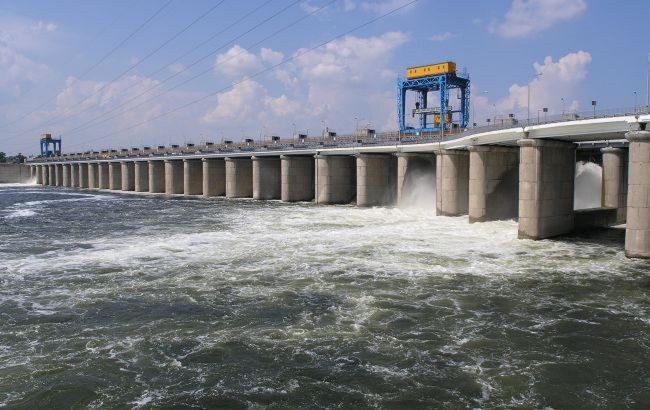Russia turns water into weapon in Ukraine, expert explains
 Photo: Kakhovka Hydroelectric Power Plant (wikimedia.org)
Photo: Kakhovka Hydroelectric Power Plant (wikimedia.org)
The number of conflicts caused by water resources is growing globally, and this issue could become a new challenge for global security, including Ukraine.
Details in RBC-Ukraine article Global water wars: Who's at risk and could Ukraine be next?
Amid Russia's full-scale war against Ukraine, this threat has become even more apparent. As Ukrainian expert Leonid Bytsyura notes, Ukraine is extremely vulnerable due to its heavy dependence on the Dnipro River.
"It's clear that the Russians simply haven't yet realized that this could also be a point of vulnerability in the Ukrainian context. Because Ukraine is an absolute outsider when it comes to water resources — we are up to 50% dependent on the Dnipro River for our water use," Bytsyura told RBC-Ukraine.
Meanwhile, German expert Tobias von Lossow reminded that Russia has already used water as a tool of pressure multiple times, both in Crimea and during military operations in other regions.
"Kakhovka Dam, of course, made the headlines. It is the case that everyone is aware of and that has been intensively discussed. But also, the dam at Kyiv reservoir was targeted by a missile on the first day, which was repelled by Ukraine’s air defense. So, water has already been on the agenda back then. It was also weaponised in Mariupol, when the city had been cut off from water supplies during the siege," von Lossow said.
Experts believe that access to water could soon become one of the main causes of new global conflicts, and Ukraine must incorporate this threat into its national security strategy.
Destruction of the Kakhovka HPP
The Kakhovka Hydroelectric Power Plant was destroyed on June 6, 2023. Russian forces, which were controlling the dam, blew it up from the inside. The explosion destroyed the engine room and the dam itself, causing massive flooding in southern Ukraine, particularly in the Kherson region. Dozens of settlements were submerged, people were killed or injured, ecosystems were destroyed, and infrastructure and irrigation systems were severely damaged.
Later satellite images showed that by spring 2024, water had begun returning to the Kakhovka reservoir, mainly from melting snow.

